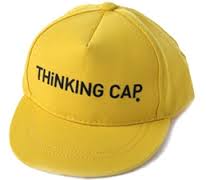Compiled by Rolfe Larson and JVA CEO, Janine Vanderburg
 With the President Obama’s recent State of the Union address, this seems a good time to assess the State of Social Enterprise (SE). We decided to crowd-source this one through the npEnterprise Forum (npE), the 10,000+ circulation, non-commercial online forum for all things SE. If you’re not already a subscriber, please join us — it’s free!
With the President Obama’s recent State of the Union address, this seems a good time to assess the State of Social Enterprise (SE). We decided to crowd-source this one through the npEnterprise Forum (npE), the 10,000+ circulation, non-commercial online forum for all things SE. If you’re not already a subscriber, please join us — it’s free!
Structure As Strategy, Not Moral Choice. Back in the day, socially-minded people formed nonprofits while entrepreneurial-minded people founded for-profits. Today, “there’s a continuum of options between pure-play charity and pure-play business,” commented Jim Fruchterman. For more information, see Jim’s favorite essay on this: “For Love or Lucre” in the Stanford Social Innovation Review. Not surprisingly, millennials are driving this trend, since they often “care more about results than what kind of organization something is,” commented Hildy Gottlieb.
 More Mergers. One way to have more impact is to get married. Hannah Pechan reported an uptick in SE mergers in Nashville in 2015, and Tom McLaughlin noted that a similar trend is evolving nationally in the nonprofit sector. Tom also commented: “I suspect we are on the verge of consolidations in most areas of the country, although it will take a while to peak in different geographies. Strong cultural and demographic factors are behind a lot of this.”
More Mergers. One way to have more impact is to get married. Hannah Pechan reported an uptick in SE mergers in Nashville in 2015, and Tom McLaughlin noted that a similar trend is evolving nationally in the nonprofit sector. Tom also commented: “I suspect we are on the verge of consolidations in most areas of the country, although it will take a while to peak in different geographies. Strong cultural and demographic factors are behind a lot of this.”
Impact Investing Is The Talk, But Does It Really Walk? Impact investing will continue to expand in 2016, with more financial institutions, foundations and high-net-worth individuals investing in companies based on impact. That’s great, but many of us feel it’s missing something. Jan Cohen points out that while many SEs can often get funds for hard start-up costs such as equipment, most struggle to “get the funds they need for consulting and start-up salaries,” even with a good business plan. Kevin Lynch writes in the Huffington Post that the impact of impact investing may be an illusion. When push comes to shove, will Goldman Sachs really choose impact over financial return? And will this illusion deter philanthropic investments? He writes: “a philanthropic dollar in a nonprofit SE produces an internal financial return that can be recycled again and again to multiply impact. An impact investment dollar demands an eventual exit for itself … regardless of whether any true impact was created in the first place.”
We All Need To Confront Racism. Lessons from Ferguson and Black Lives Matter are not only for the police and  government. Suzanne Smith points out that with “communities across the country being confronted with racism and discrimination,” all of us working on social issues need to confront racial justice issues within our own organizations. Here’s her blog on this topic, which includes practical steps for things like purchasing, hiring and programming.
government. Suzanne Smith points out that with “communities across the country being confronted with racism and discrimination,” all of us working on social issues need to confront racial justice issues within our own organizations. Here’s her blog on this topic, which includes practical steps for things like purchasing, hiring and programming.
Mapping The Sector. A 2016 priority for the Social Enterprise Alliance is to develop a map and census of the SE sector, to provide greater clarity, cohesiveness and attention to the sector. That’s an excellent priority, one that will build on previous efforts to count noses. Back in the last century, Community Wealth Ventures developed a directory of nonprofits with business ventures. About five years ago, Pacific Community Ventures invited SEs in any sector to register in the Great Social Enterprise Census. More recently, RLA created the Social Impact App that provides access to 1000s of SEs online and on your phone. And finally, looking internationally, SEFORIS in Europe just finished interviewing more than 1000 directors of SEs from China, Russia and the EU. We’re looking forward to the advances that will come from SEA’s work in this area in 2016.
 What do you think? Please write to us with your suggestions and comments on where social enterprise is going, or should be going, in 2016. Please send your thoughts to Rolfe@RolfeLarson.com and we’ll publish them in a future edition of the npEnterprise Forum!
What do you think? Please write to us with your suggestions and comments on where social enterprise is going, or should be going, in 2016. Please send your thoughts to Rolfe@RolfeLarson.com and we’ll publish them in a future edition of the npEnterprise Forum!
Janine Vanderburg and Rolfe Larson are Denver-based consultants who partner on social enterprise projects, and also serve together on the board of SEA’s Colorado chapter. They each have 30+ years experience helping organizations achieve greater impact and financial sustainability. Recently this partnership developed a new suite of affordable SE consulting products called the Social Enterprise Navigator Series.






Leave A Comment